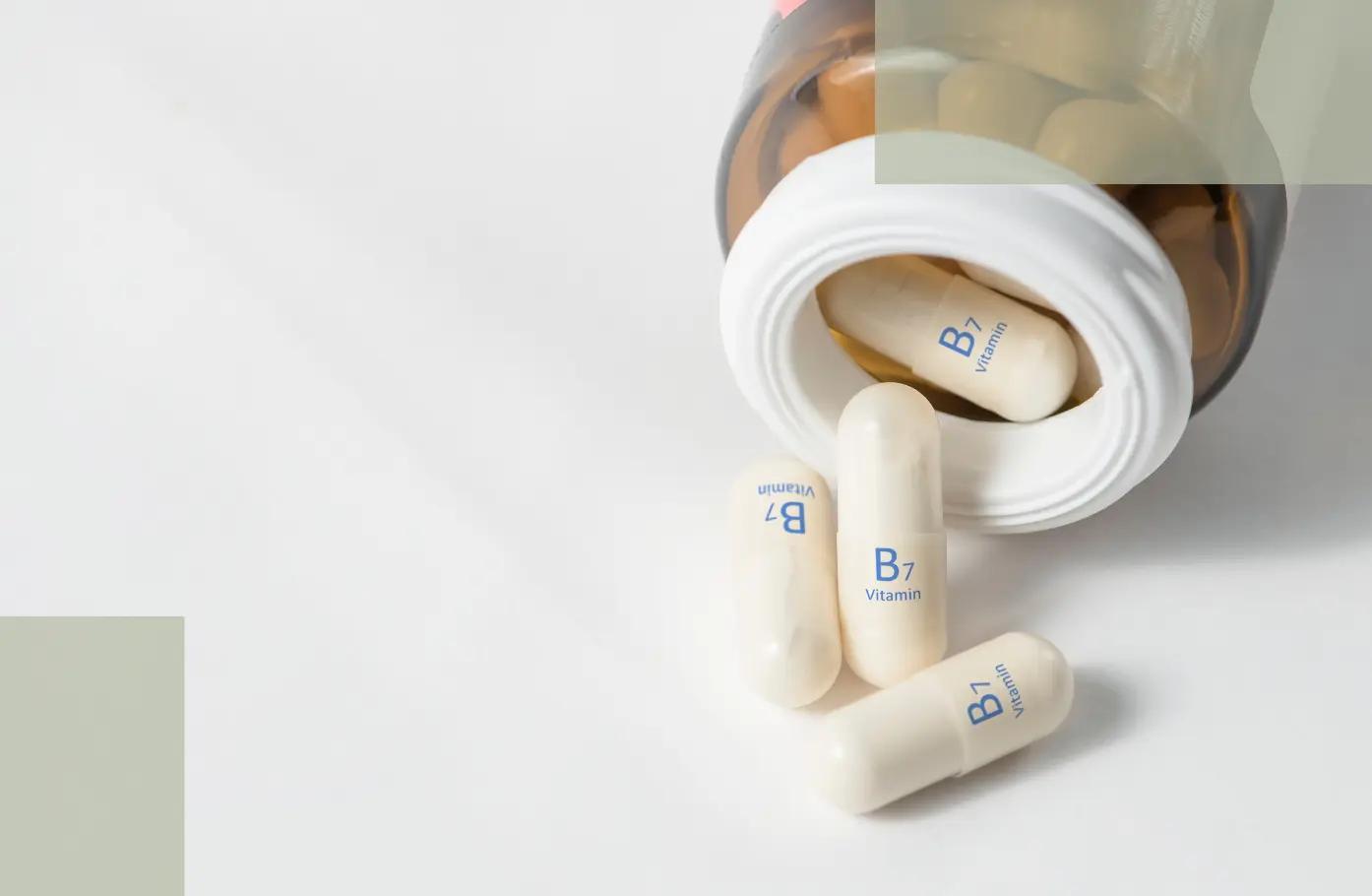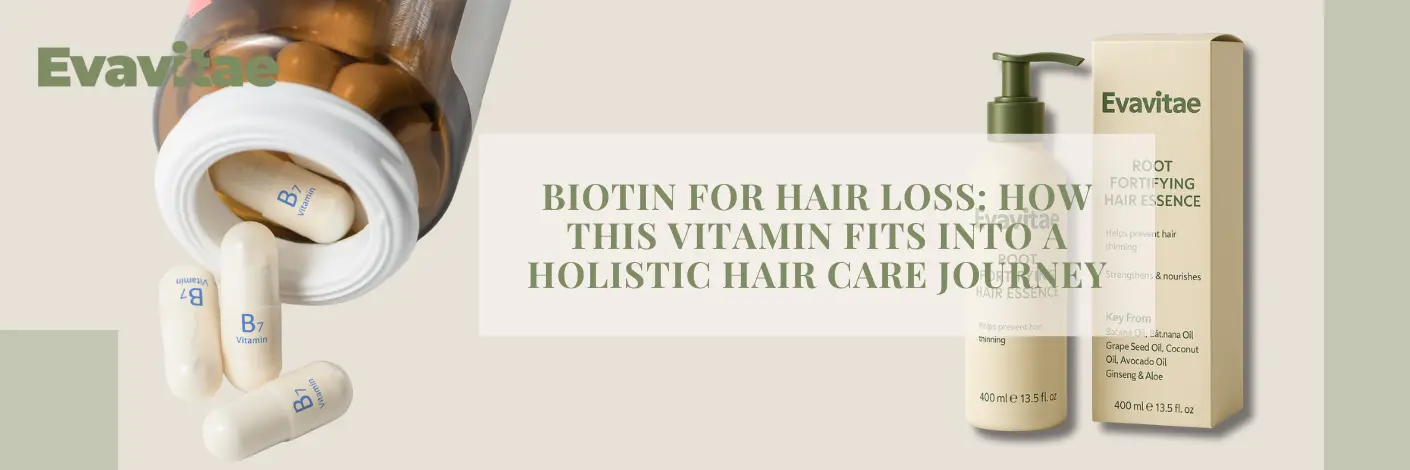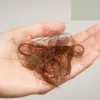
Hair loss is a common concern for both men and women, and its causes range from genetics to nutrition, lifestyle, and health conditions. Among the many nutrients linked to hair health, biotin—also known as vitamin B7—often stands out. Many people ask: Can biotin really help with hair loss? The answer is nuanced. While biotin has important roles in supporting hair and scalp health, it is not a one-size-fits-all solution. This article explores the science of biotin, the situations where it may help, and how to think about hair care more holistically.
What Is Biotin and Why Is It Important?
Biotin is a water-soluble B vitamin that plays a key role in the metabolism of carbohydrates, fats, and proteins. It is particularly essential for keratin production, the structural protein that makes up hair, skin, and nails. Without adequate biotin, keratin infrastructure can weaken, potentially contributing to brittle hair and increased shedding (Mock, 2017).
Although biotin deficiency is rare, certain factors—including pregnancy, digestive disorders, and long-term use of antibiotics—can interfere with absorption and utilization. In these cases, supplementation may support healthy hair growth by restoring adequate nutrient levels.
Biotin Deficiency and Hair Loss
When biotin levels are insufficient, hair loss often appears as diffuse thinning rather than distinct bald patches. Some studies have shown that women with biotin deficiency may experience improved hair density after supplementation (Trüeb, 2016). However, deficiency-related hair loss is uncommon in the general population, and routine supplementation may not significantly affect those with normal levels.
It is also important to note that hair loss has multiple causes. Stress, hormonal imbalances, thyroid dysfunction, and iron deficiency are among the most frequent triggers. This means that even if biotin supports hair structure, it cannot address every underlying factor (Harvard T.H. Chan School of Public Health, 2022).
Biotin Supplementation: What the Evidence Shows
There is growing public interest in biotin supplements, often marketed for hair and nail health. Research findings, however, are mixed:
- Positive associations: Case reports and small clinical studies suggest improvements in hair growth and thickness when biotin is given to patients with deficiency or brittle hair syndromes (Patel et al., 2017).
- Limited evidence for healthy individuals: For people without deficiency, large-scale randomized trials have not yet proven that extra biotin leads to noticeable hair growth (National Institutes of Health, 2023).
As a result, biotin supplementation is best understood as a corrective measure when deficiency exists, rather than a universal hair growth “cure.”
Dietary Sources of Biotin
For most individuals, biotin needs can be met through diet. Rich food sources include:
- Eggs (cooked to deactivate avidin, a protein that blocks biotin absorption)
- Nuts and seeds such as almonds, walnuts, and sunflower seeds
- Legumes, including lentils and peanuts
- Whole grains
- Leafy green vegetables
- Organ meats like liver
Because biotin is widely available in everyday foods, deficiency remains rare. Maintaining a balanced diet is usually enough to sustain healthy levels.
While nutrition plays a key role in supporting healthy hair, the right shampoo can make a big difference too. To understand how formulations vary between genders, check out our detailed guide on the key differences between hair loss shampoos for women and men.
In addition to supplements, topical applications can help reinforce Biotin’s benefits. Learn more in our guide on biotin shampoo for hair growth and the ingredients that make it effective.
The Bigger Picture: Holistic Approaches to Hair Loss
While biotin for hair loss is an important piece of the conversation, a comprehensive approach is more effective. Key considerations include:
- Identifying root causes: Laboratory testing may help reveal deficiencies, thyroid imbalances, or anemia.
- Stress management: Chronic stress can trigger telogen effluvium, a common type of temporary hair shedding.
- Gentle scalp care: Using mild, sulfate-free cleansers(try Evavitae shampoo) and avoiding harsh chemical treatments reduces unnecessary breakage.
- Supportive lifestyle habits: Adequate sleep, balanced nutrition, and hydration contribute to overall scalp health.
From a brand(Evavitae) perspective, we emphasize transparency and balance—helping people recognize when biotin may play a role, but also when it may not be the primary solution. Our philosophy is that effective care blends science, nutrition, and gentle topical products designed for sensitive scalps(click here to view Evavitae product ingredient list).
When to See a Professional
Final Thoughts
Biotin is a vital nutrient for hair health, but it is not a stand-alone cure. For those with deficiency, correcting biotin levels can make a significant difference in hair strength and appearance. For others, the path to healthier hair involves addressing nutrition, scalp care, stress, and medical conditions.
At Evavitae, we believe in nurturing hair from within and supporting it gently from the outside. Our approach highlights science-based care, transparency, and long-term well-being over quick fixes.
For expert-backed postpartum hair care routines, see the Complete Recovery Hub.
References (APA Format)
Harvard T.H. Chan School of Public Health. (2022). Vitamin B7 (Biotin). The Nutrition Source. Retrieved from https://www.hsph.harvard.edu/nutritionsource/vitamins/biotin
Mock, D. M. (2017). Biotin: From nutrition to therapeutics. The Journal of Nutritional Biochemistry, 45, 1–8. https://doi.org/10.1016/j.jnutbio.2017.02.012
National Institutes of Health. (2023). Biotin Fact Sheet for Health Professionals. Retrieved from https://ods.od.nih.gov/factsheets/Biotin-HealthProfessional/
Patel, D. P., Swink, S. M., & Castelo-Soccio, L. (2017). A review of the use of biotin for hair loss. Skin Appendage Disorders, 3(3), 166–169. https://doi.org/10.1159/000462981
Trüeb, R. M. (2016). Serum biotin levels in women complaining of hair loss. International Journal of Trichology, 8(2), 73–77. https://doi.org/10.4103/0974-7753.188965
Evavitae products are now available exclusively at www.evavitae.com.




Add comment
You must be logged in to post a comment.